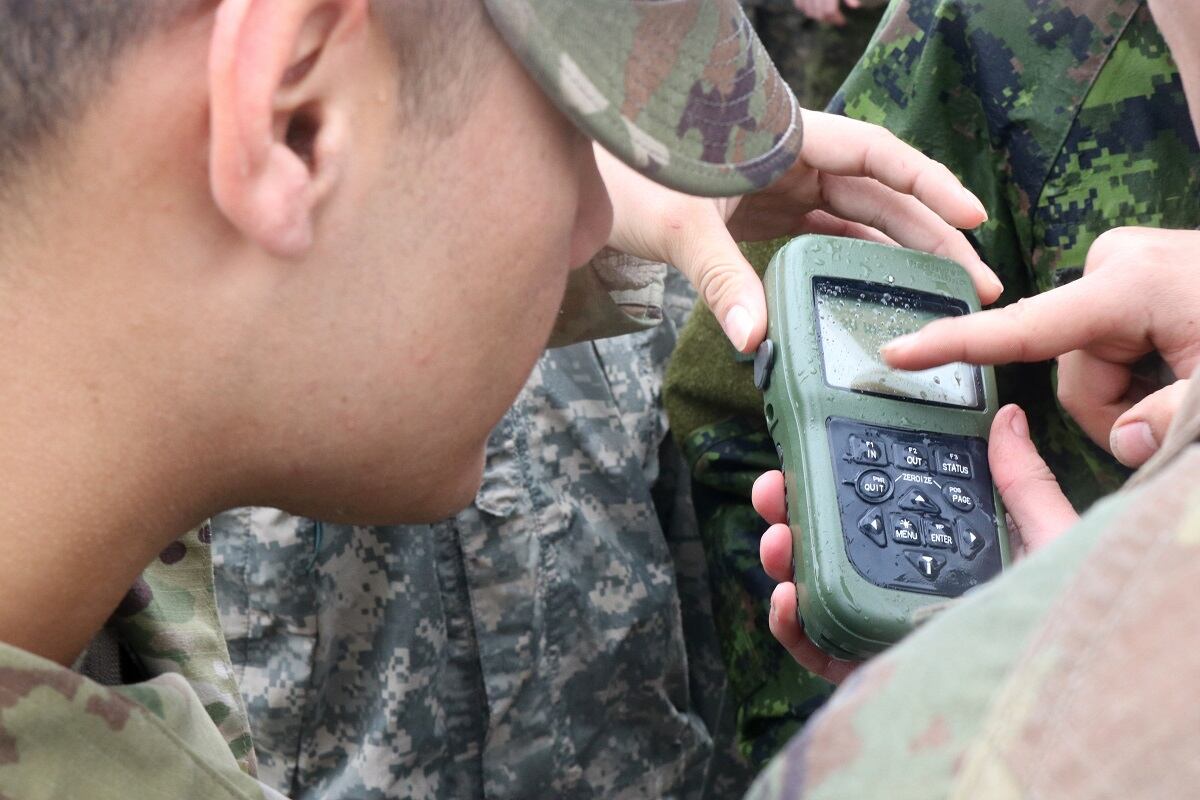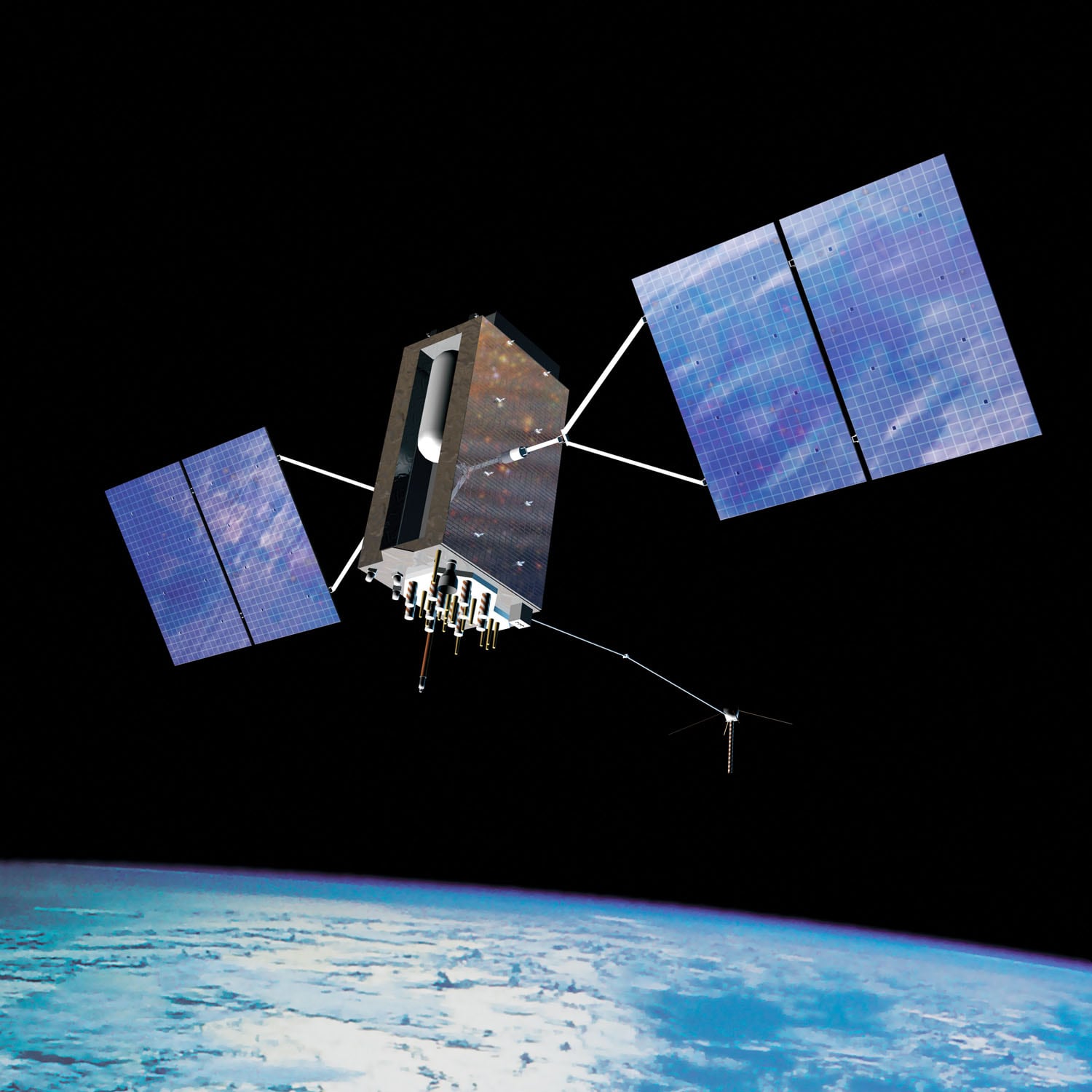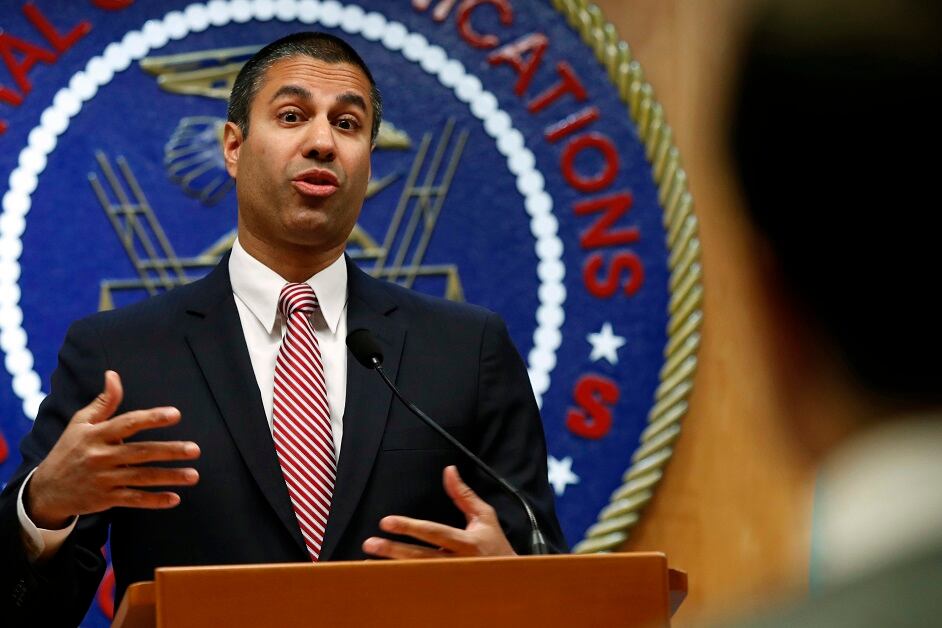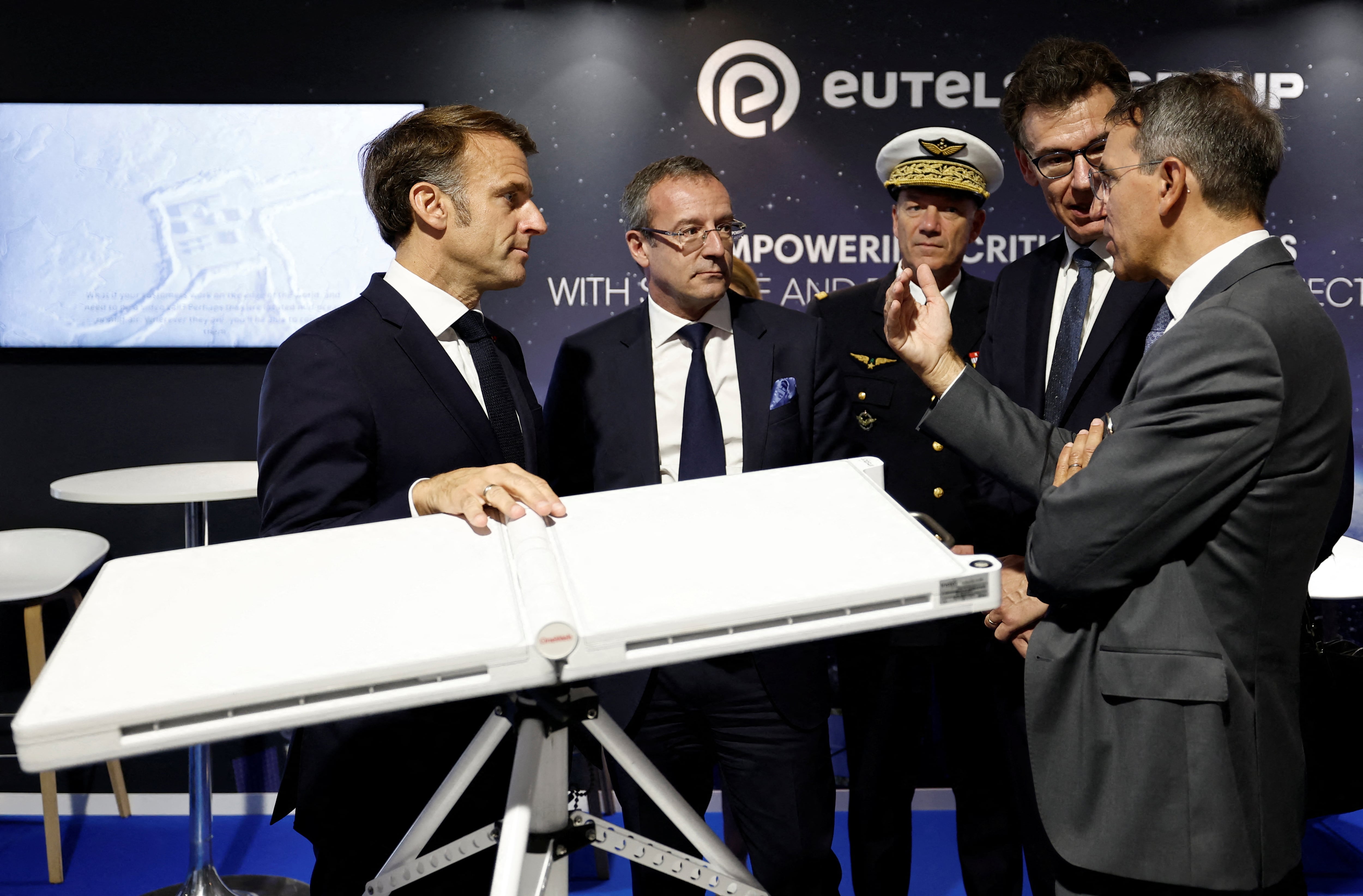Top defense officials used a May 6 hearing to make a detailed, public case for why the Federal Communications Commission was mistaken last month when it voted to allow Virginia-based Ligado access to spectrum that the Pentagon says will harm the global positioning system — but stopped short of publicly asking for legislative assistance from friendly senators.
The hearing, the Senate Armed Services Committee’s first since returning from a coronavirus-related break, was unusually technical, with defense officials providing a joint presentation about how GPS works, their view of Ligado’s technology, and how the military could be hurt by Ligado’s efforts. The first round of questions from senators took more than two hours and 15 minutes.
A pro-Pentagon tone was set early. Sens. Jim Inhofe, R-Okla., and Jack Reed, D-RI., the chairman and ranking member of the committee, had joined their House counterparts to write an April 23 op-ed slamming the FCC’s decision and threatening potential legislative action. Notably, neither representatives from Ligado nor the FCC were invited to attend the hearing.
News that the FCC planned to approve Ligado’s request was first reported April 10 by C4ISRNET. On April 20, the FCC unanimously voted to move forward with the plan.
Appearing before the committee were Dana Deasy, the department’s chief information officer; research and engineering head Mike Griffin; Gen. Jay Raymond, the head of U.S. Space Force; and Thad Allen, a retired Coast Guard admiral with years of radio frequency experience.
The fight over Ligado’s request dates back almost a decade, when the company was known as LightSquared and had different ownership. But objection from the Pentagon has remained steady, with defense leaders saying Ligado’s plan would cause disruptions of the GPS system that could put war fighters in harm’s way.
Supporters, including FCC chairman Ajit Pai, have argued that technical changes from Ligado make it so that DoD systems should not be impacted. And members of the Trump administration, including Secretary of State Mike Pompeo and Attorney General Bill Barr, have praised the move, saying it is vital to building out a 5G capability to rival that of China.
L-band is described as the range of frequencies between 1 to 2 GHz. GPS, and other international navigation systems, rely on L-band because it can easily penetrate clouds, fog, rain and vegetation. Ligado owns a license to operate the spectrum near GPS to build what the firm describes as a 5G network that would boost connectivity for the industrial “internet of things” market.
At its simplest, the fight comes down to which set of testing data one believes. The DoD and those siding with it argue that Ligado’s L-Band plan would create interference with GPS capabilities, harming military use and the economic benefits from the system. Ligado’s case rests on the argument that DoD’s testing does not accurately capture the mitigation plan the company has developed over the years, and argues that there is no true proof that interference will be an issue.
The Pentagon’s case
The Pentagon officials relied on three major talking points that they came back to time and again throughout the hearing, often supported by the Senators asking questions.
Argument 1: Ligado is not a provider of true 5G capability. The company and its supporters, including Attorney General Barr, have emphasized the importance of allowing Ligado’s plan to go forward in order to develop strong 5G capabilities. But Inhofe and Deasy emphasized that the band Ligado plans to operate in is not part of the FCC’s 5G FAST plan for developing 5G.
“We all agree we need to compete with China in the 5G development,” said Inhofe. “Ligado’s proposal is not tied to that work whatsoever …. they tried to conflate this proposal with other midband spectrum sharing discussion but in reality these two issues are completely separate.”
Pentagon officials backed up that assertion.
“The non-contiguous bands that Ligado could bring to market are fragmented and impaired,” Deasy said in written testimony. “Furthermore, Ligado’s plans only target a small subset of 5G specifications, mainly limited Internet of Things, rather than the full range of high data rate, ultra-fast 5G services needed to reach the full promise of 5G benefits for businesses and consumers.”
RELATED

Argument 2: Ligado’s proposed fixes are technologically and logistically impossible to implement. Ligado’s plan, as approved by the FCC, comes with requirements that the company help cover costs and replace U.S. government receivers that are impacted in any way.
In his testimony, Deasy wrote that it would be impossible for the millions of receivers used around the United States, both from the federal government and general consumers, to be tracked for interference. More specific to the military, Deasy noted that the idea of replacing GPS receivers inside military systems is not realistic.
“The FCC order expects Ligado to protect U.S. government GPS receivers and to repair or replace affected receivers identified before Ligado terrestrial operations commence. But this overlooks the classified nature of military GPS use and the sheer number of government receivers and military platforms affected,” Deasy wrote. “The FCC expectation is unreasonable and could never be employed in real practice. To avert significant mission impacts, the government would need to undertake unprecedented accelerated testing, modification and integration of new GPS receivers on existing platforms. This is cost and schedule prohibitive and would significantly degrade national security.”
During testimony, Griffin noted that DoD systems are not designed so that the GPS receivers are easily accessed. Trying to do so would at best require taking a weapon system out of service for a period of time in order to apply a fix; in some case, it would require damaging the system to get to its inner parts and potentially leaving the system inoperable.
Argument 3: Ligado’s impact on GPS will lead commercial GPS users to switch over to non-U.S. GPS providers, most notably Chinese systems. This talking point appeared to be crafted to challenge the pro-Ligado argument that 5G capabilities need to be developed to counter China.
“The department believes this FCC ruling increases the risk that American families and businesses may turn to foreign space-based navigation and timing systems like China’s BeiDou and Russia’s GLONASS, to replace the functions of GPS if it becomes unreliable due to interference from Ligado operations,” Deasy wrote. “This is fundamentally a bad deal for America’s national and economic security.”
Added Griffin, a noted China hawk: “If we damage our own world standard… we should only expect that users worldwide will find other standards. That will not be to our benefit.”

‘Caught off guard’
A point that defense officials, Reed and particularly Inhofe came back to several times was that the Pentagon expected to have more of a chance to weigh in on the issue — not to be blindsided by the FCC voting over a weekend to approve the measure.
Deasy said the DoD and FCC have “historically” had a good working relationship, but that broke down in this situation.
“There was not a give or take, the back and forth we typically go through. At the end of the day we were completely caught off guard when over the weekend in April the decision was taken by the FCC to go ahead and move forward” with the plan, later calling the FCC’s actions “unheard of.”
Asked during a press call after the hearing if he believed the FCC purposefully tried to hide what was coming from the department, Deasy declined to speculate.
Inhofe repeatedly pointed to the fact some FCC members voted on a Sunday and at a time when the country was distracted by the coronavirus outbreak.
“A few powerful people made a hasty decision over a weekend, in the middle of a national crisis, against the advice of every other agency involved and without cluing the president in on any of this,” Inhofe said, adding he had talked with U.S. President Trump and “I can assure you that is the case.”
Despite all that, the defense officials clammed up when asked several times what they wanted the SASC members to do. The lack of direct reply eventually led Inhofe to state that he, at least, knows what he wants: “We want to get this thing reversed.”
There is a formal path forward for petitioning the FCC to change its ruling, which Deasy said the department would pursue before the end of the month; however, given the unanimous vote at the FCC, convincing three or more members to change their minds seems a long shot. And a number of SASC members noted they don’t have direct oversight of the FCC; that belongs to the commerce committees.
On the call with reporters, Deasy said that “one avenue could be legislative action” but declined to go into details.
An hour before the hearing, Ligado executives publicly released a five-page letter to the SASC members, with an additional presentation, arguing the company’s case and calling it “unfortunate” the company was not asked to be present.
RELATED

The letter argues the company will provide benefits for 5G, a feat proponents such as former NASA head Dan Goldin have echoed. It also raises questions about the DoD figures, which it said has not been retested since 2016; since then, Ligado has altered its plans in several ways the company says should mitigate the concerns from that older government testing.
Towards the latter half of the hearing, some senators did express skepticism about the DoD argument, most notably Sen. Tim Kaine, D-Virginia, who noted that without representation from Ligado or the FCC at the hearing it was hard to take the one-sided arguments on face value.
Industry weighs in
Multiple trade groups with an interest in GPS capabilities, as well as space-focused companies who view Ligado as a potential competitor have backed the Pentagon. In the wake of the FCC’s approval, those trade groups have issued several individual statements of concern, culminating in almost 70 groups and companies signing a letter to Inhofe and Reed warning Ligado “risks public safety.”
Among that coalition of companies: major defense contractors like Lockheed Martin and L3Harris; air carriers like American Airlines, United, and Southwest; the National Defense Industries Association and Aerospace Industries Association; and freight carriers UPS and FedEx.
Secretary of Defense Mark Esper also joined in the fight this week, using the opening comments of a May 5 press conference to push back at the FCC decision, and publishing a May 6 op-ed in the Wall Street Journal warning of the potential damage.
“There is no evidence that the company has a technically viable 5G solution. This is about one company changing the rules to maximize the value of its spectrum, and the cost to Americans is too great to justify,” Esper wrote. “In announcing its recent decision, the FCC rehashed Ligado’s old arguments, wrapped in new language, to say that the company has made changes and the FCC has set conditions to ensure GPS won’t be affected. Don’t be fooled.”
This story was updated with Deasy’s comments to reporters.
Aaron Mehta was deputy editor and senior Pentagon correspondent for Defense News, covering policy, strategy and acquisition at the highest levels of the Defense Department and its international partners.








